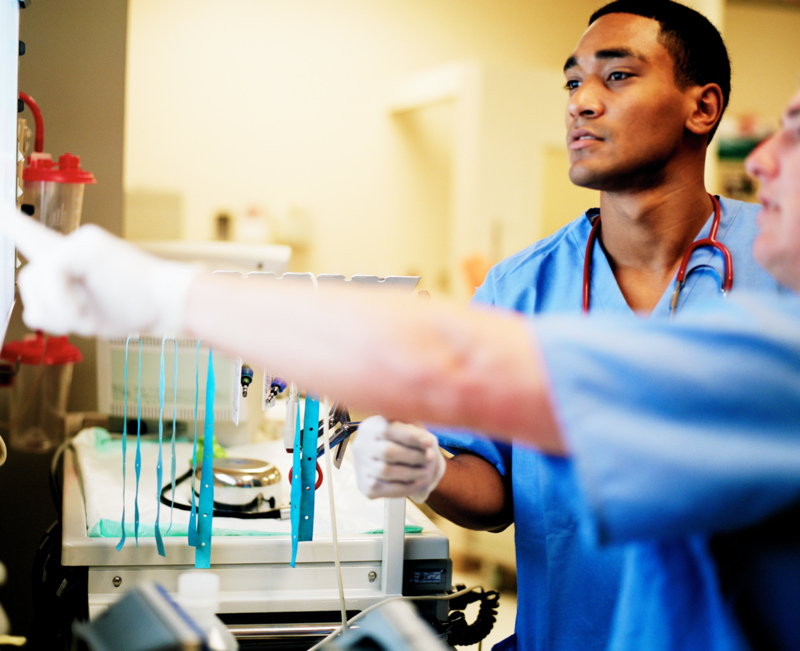
Here are some of the latest health and medical news developments, compiled by the editors of HealthDay:
Bill and Melinda Gates, 5 Scientists Share Lasker Awards
This year’s recipients of the prestigious Lasker Awards for medical research and contributions to public health include Bill and Melinda Gates, three researchers who developed implants that enable deaf people to hear, and two scientists who revealed how brain cells communicate.
The winners of the $250,000 prizes in the different categories were announced Monday by the Albert and Mary Lasker Foundation. The awards will be presented Sept. 20 in New York City, the Associated Press reported.
The clinical medical research award will be shared by Australian researcher Graeme Clark, Austrian Ingeborg Hochmair, and Blake Wilson of Duke University in North Carolina for their roles in developing the modern cochlear implant, which benefits more than 320,000 people around the world with severe hearing loss.
The award for basic medical research will be shared by Richard Scheller of the biotech company Genentech and Dr. Thomas Sudhof of Stanford University. They discovered how brain cells release chemical messengers to communicate with each other, the AP reported.
Their research is helping scientists learn more about serious brain conditions such as Parkinson’s disease, the foundation noted.
Bill and Melinda Gates won the public service award “for leading a historic transformation in the way we view the globe’s most pressing health concerns and improving the lives of millions of the world’s most vulnerable,” according to the foundation, the AP reported.
The Gateses have donated more than $26 billion to their philanthropic foundation and often team up with agencies that can provide diverse expertise, the foundation said.
—–
Motrin Infants Formula Recalled
About 200,000 bottles of Motrin Infants formula, which is used to treat fever and aches and pains in children 2 years old and younger, are being recalled because they may contain tiny plastic particles, Johnson & Johnson says.
The recall covers three lots of Motrin Infants’ Drops Original Berry Flavor. The lot numbers of the recalled half-ounce bottles are DCB3T01, DDB4R01 and DDB4S01, the Associated Press reported.
The recalled products may contain tiny bits of PTFE, which is a plastic used in Teflon coatings. It’s unclear if the recalled bottles actually contain the particles, which were found in a different product during the manufacturing process, J&J’s McNeil unit said, the news service reported.
Both products contain the same shipment of ibuprofen from a third-party supplier, the company explained.
“From our perspective, during the manufacturing process at the third party supplier, that’s when the particles got into the ibuprofen,” McNeil Vice President Ed Kuffner told the AP. He would not identify the supplier that made the ibuprofen.
No illnesses or injuries associated with the affected medicine have been reported to date, according to the company.
McNeil has told retailers to remove the recalled lots from their shelves. Consumers should stop using the products and call McNeil for a refund at 1-877-414-7709, the AP reported.
—–
Drug Cocktail Protects Monkeys Against MERS: Study
A combination of two antiviral drugs protected monkeys against the deadly Middle East Respiratory Syndrome coronavirus (MERS) and could potentially be used to save people infected with the virus, a new study says.
Researchers at the U.S. National Institute of Allergy and Infectious Diseases gave ribavirin and interferon to three of six rhesus monkeys eight hours after they were infected with MERS, The New York Times reported.
The three monkeys that received the drug cocktail had lower levels of virus in their blood, no breathing problems and only minimal X-ray evidence of pneumonia, while the untreated monkeys became severely ill, according to the study in the journal Nature Medicine.
The findings are “not a game changer, but an important observation,” according to institute director Dr. Anthony Fauci, the Times reported.
He noted that it was a small study, treatment started soon after the monkeys were infected, and that drugs that are effective in monkeys sometimes fail in humans. However, Fauci added that “if I were a doctor with MERS patients, and I had nothing else to give them, I wouldn’t hesitate. If someone has advanced disease, there’s 50 percent mortality.”
Most of the MERS cases have occurred in Saudi Arabia. Doctors there have already tried this two-drug combination on patients, but it did not work well, Dr. Ziad Memish, Saudi Arabia’s deputy health minister, told the Times.
However, this may have been because the drug treatment was started late, when patients were hospitalized and already very ill, he added.
Copyright © 2026 HealthDay. All rights reserved.

